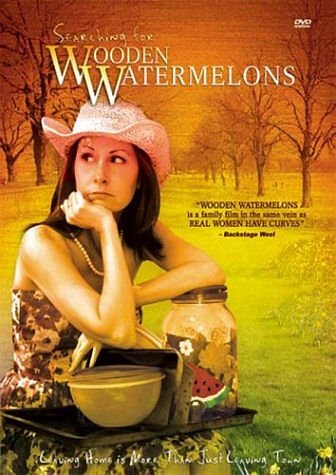In Search of 'Wooden Watermelons’ and True Net Neutrality

Searching for Wooden Watermelons is a sweet indie flick about a bright 20-something in Beaumont, Texas, who is puzzling out her future. Hundreds of Watermelons-style films exist. Call ‘em Small Town Smart and Unhappy.
And yet I couldn’t take my eyes off Watermelons when I watched it on the Vanguard channel by way of the Internet and my Roku box. You’re welcome to disagree. But both the writing and acting resonated with me. Props to Wendy English, the scriptwriter-actor-producer.
Thanks to powerful Washington lawyers and lobbyists, however, the kind described in Mark Leibovich's This Town, quirky delights like Watermelons may vanish from our screens or at least be more expensive than need be to watch. The D.C. Court of Appeals has dissed the idea of Net neutrality. Very possibly, Vanguard will have to directly or indirectly pay up more to giants like Comcast. Meanwhile the big boys perhaps can more easily favor the mass entertainment they find most profitable.
I use the words “may,” “possibly” and “perhaps” quite deliberately, since it’s too early to know how things will ultimately shake out. Susan Crawford, a visiting professor of law at Harvard, hopes that the FCC can tweak its rules to rebrand Comcast and the rest as “common carriage services.” Most likely the FCC will make the tweak or appeal to the Supreme Court. But though budget threats against the FCC and pressure on the Obama White House---thank you, telecommunications lobbyists---some on Capitol Hill will do their best to prevent that.
Let’s hope that congress members opposed to Net neutrality will reconsider despite of all the donations from Comcast, AT&T, Verizon and friends to candidates and both political parties by way of political action committees and executive contributions.
Granted, Comcast and the like have their better sides. MSNBC, while flawed, is a much-welcome alternative to Fox News, and Comcast’s program to get low-income people online is at least a start despite its shortcomings. More significantly, NBCUniversal, Inc., where English has been working as a producer, is now a Comcast subsidiary. Not everything from the majors is dreck, far from it (by way of disclosure, a draft script adapted from my novel The Solomon Scandals is floating around in Hollywood). But in this case, thanks to Comcast and friends, we’re talking about the risks of higher prices and fewer viewing, listening and reading options for all us.
Watermelons itself is really about choices of a different sort. And maybe Americans need to be more careful about still another kind---the choices we make in the voting booths. Regardless of how well-bought “this town” is (yes, yes, read Leibovich and look up your favorite politicians on OpenSecrets), don’t members of both parties portray themselves as pro-creativity, pro-innovation, pro-consumer and pro-small business? The court decision is anti in all those respects. Ideally people on the Hill would have allowed more consumer-friendly judges to be appointed to the D.C. Court of Appeals, one of the nation’s most important. Then the decision might have gone the other way, meaning less suspense at the FCC.
Small-town Tea Party types, especially, need to appreciate the unpleasant ramifications of the decision. Just study the plot of Searching for Wooden Watermelons.
The film is at least ten years old, and Jude Farnie, the protagonist, needs at the time to go off to Hollywood to be a television writer. Perhaps with a better-wired nation and more competition among Internet providers, which the demise of Net neutrality would reduce, she at least could have sold her first script or found an agent without having to leave Beaumont.
If nothing else, imagine what a boon Jude Farnie would have discovered Netflix, Vanguard and a Roku box to be---in studying Hollywood’s existing works to help hone TV and movie scripts. Jude’s lessons from VHS tapes were far, far less rich that what she’d enjoy today. She might also have taken advantage of 2014-level broadband to participate more easily in screenwriting communities online. Admittedly, being in Hollywood for real helps even now. Still, I think I’ve made my point.
This is just one example. From graphic artists to young software whizzes, the court decision could hurt America’s creative community---especially those members living in places like Beaumont and and elsewhere in Flyover Country.
Internet giants in the past have not always been kind to Beaumont. The last thing in the world we need is to loosen regulations on them.
